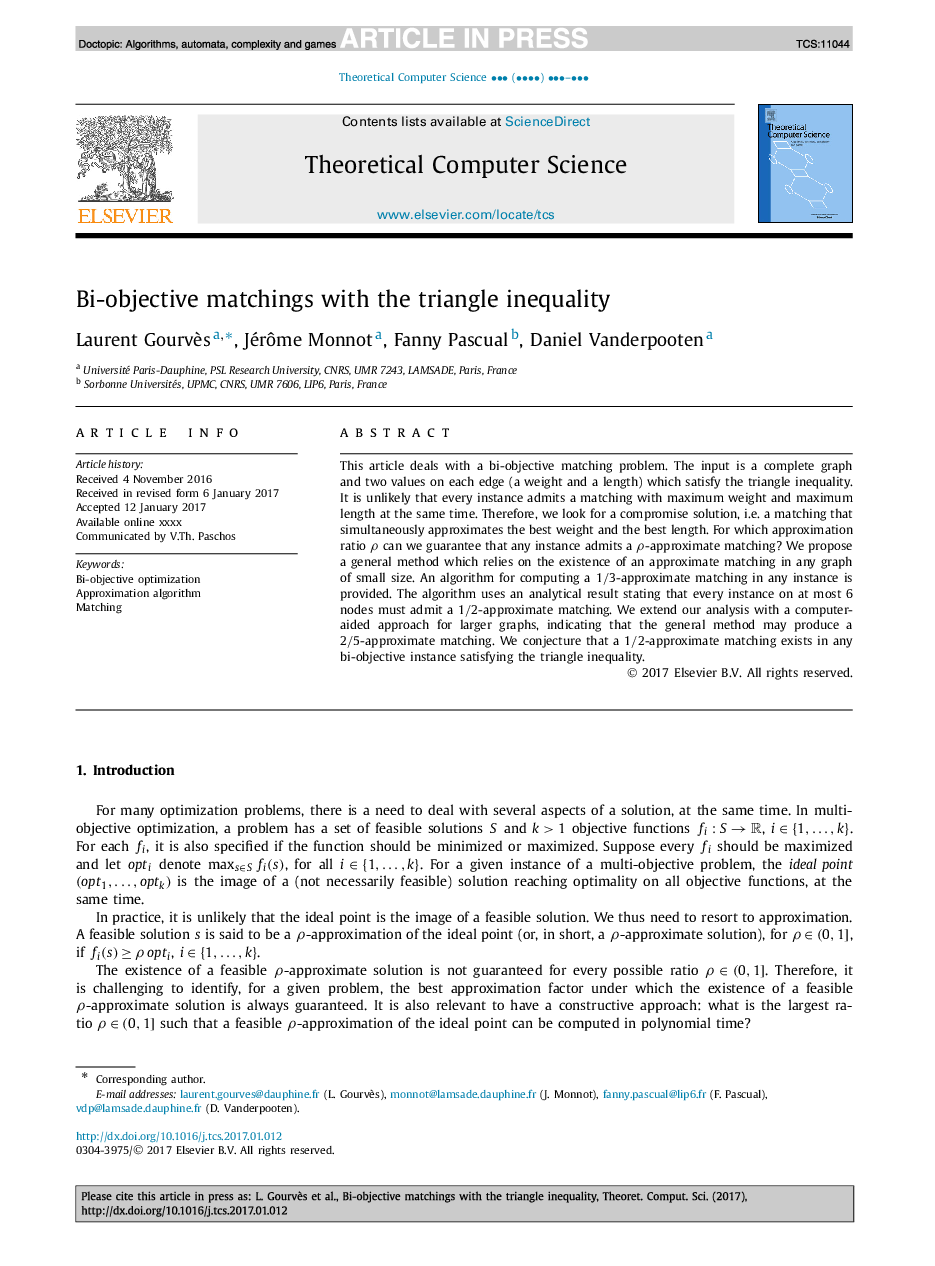| Article ID | Journal | Published Year | Pages | File Type |
|---|---|---|---|---|
| 4952184 | Theoretical Computer Science | 2017 | 10 Pages |
Abstract
This article deals with a bi-objective matching problem. The input is a complete graph and two values on each edge (a weight and a length) which satisfy the triangle inequality. It is unlikely that every instance admits a matching with maximum weight and maximum length at the same time. Therefore, we look for a compromise solution, i.e. a matching that simultaneously approximates the best weight and the best length. For which approximation ratio Ï can we guarantee that any instance admits a Ï-approximate matching? We propose a general method which relies on the existence of an approximate matching in any graph of small size. An algorithm for computing a 1/3-approximate matching in any instance is provided. The algorithm uses an analytical result stating that every instance on at most 6 nodes must admit a 1/2-approximate matching. We extend our analysis with a computer-aided approach for larger graphs, indicating that the general method may produce a 2/5-approximate matching. We conjecture that a 1/2-approximate matching exists in any bi-objective instance satisfying the triangle inequality.
Related Topics
Physical Sciences and Engineering
Computer Science
Computational Theory and Mathematics
Authors
Laurent Gourvès, Jérôme Monnot, Fanny Pascual, Daniel Vanderpooten,
